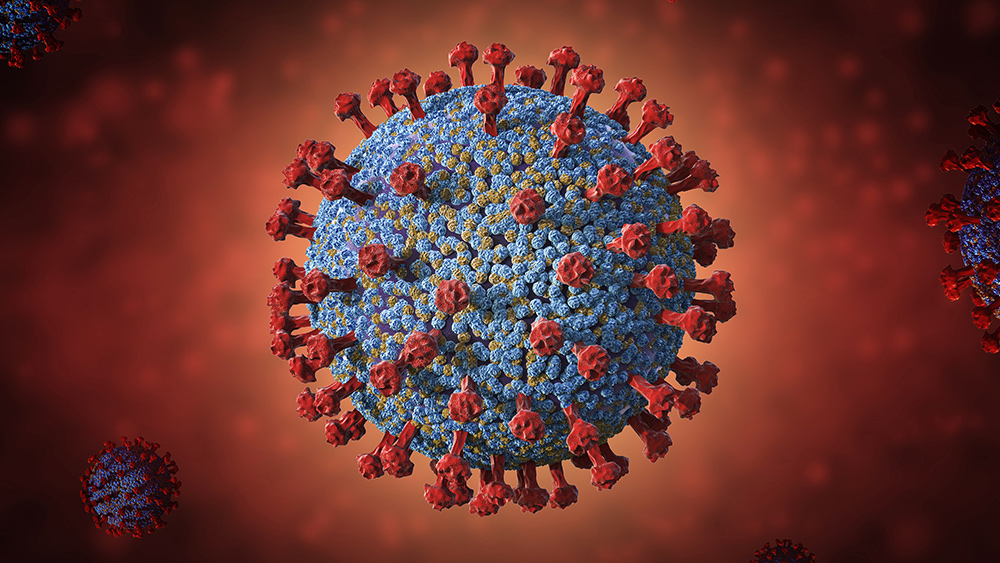Study: “Eco-friendly” plant-based drinking straws more harmful than plastic ones due to toxic FOREVER CHEMICALS
09/15/2023 / By Olivia Cook

Plant-based drinking straws, often touted as alternatives to plastic versions, may not be “eco-friendly” as they purport themselves to be. This is because researchers from Belgium have found that these plant-based straws contain toxic “forever chemicals” that cause more harm to the environment.
The authors of the study published in Food Additives & Contaminants looked at the concentrations of per- and polyfluoroalkyl substances (PFAS) in 39 drinking straw brands found in shops, supermarkets and restaurants in Belgium. They divided the 39 products based on the materials they were made of – paper, bamboo, glass, stainless steel and plastic.
Of the straws tested, almost all contained some concentration of PFAS – often used during manufacturing to make products water-resistant. The chemicals were detected in 27 of the 39 drinking straws, with none being found in those made of stainless steel.
Researchers found that 18 out of 20 brands of paper straws – a whopping 90 percent – tested positive for PFAS. Four out of five bamboo straws – another highly touted green alternative – clocked in second with 80 percent, followed by three of four plastic straw brands (75 percent) and two of five glass straw brands (40 percent).
By far the most prevalent PFA was perfluorooctanoic acid (PFOA), which has been banned globally since 2020. However, this substance is still manufactured in some countries and could be present in products bought by U.S. consumers. Also present were trifluoroacetic acid (TFA) and trifluoromethanesulfonic acid (TFMS) – PFAS which easily dissolve in water – meaning they could potentially leach out of straws into beverages.

Other potential PFA sources could be the soil the plant-based materials were grown in, as well as the water used in their manufacturing.
PFAS in plastic straws take a long time to degrade
Straws made from plant-based materials, such as paper and bamboo, are often advertised as being more sustainable and eco-friendly than those made from plastic. However, corresponding study author and environmental scientist Dr. Thimo Groffen of the University of Antwerp begged to differ. He said in a statement that the presence of PFAS in such “eco-friendly” straws proves otherwise.
Building upon a 2021 study published in Chemosphere that identified PFAS in U.S. drinking straws, Groffen and his colleagues sought to determine whether the same was true in their home country, Belgium. The authors found this question particularly interesting as a growing number of countries, including the U.K. and Belgium, have banned the sale of single-use plastic products, including straws.
In the U.S., multiple initiatives are being enforced by numerous cities, including New York City, and restaurant chains to ban disposable plastic suckers comprised of polypropylene and polystyrene, which take hundreds of years to decompose and are linked to health problems from liver problems to birth defects.
Groffen and his co-authors detected 18 different types of PFAS in the straws they examined, though overall in low concentrations. The chemical most commonly found, however, was perfluorooctanoic acid (PFOA) which was banned globally in 2020.
The study’s conclusion said these “eco-friendly” plant-based straws are not necessarily a more sustainable alternative to plastic straws because they can be considered as an additional source of PFAS exposure in humans and the environment – for example, after degradation in landfills or through incomplete incineration. (Related: NASA finds that Californians’ TRASH emits far more methane into the atmosphere than cattle ranches… should we ban trash services to solve the global warming problem?)
While small amounts of PFAS are not harmful in and of themselves, their ability to build up over time – including in the human body – is what poses the most risk. The study also discovered PFAS that are known to be highly water-soluble, meaning they have the potential to bleed from the straw into a drink, but did not investigate this component further.
The researchers proposed that, while manufacturers could intentionally coat their plant-based straws in chemicals to make them water-repellent, the presence of PFAS could also be attributed to contaminated soil or an unintended consequence of material recycling.
The study authors ultimately suggested the use of stainless steel straws instead. Such drinking straws, they argued, are better for the environment and people’s health. This is because they are devoid of PFAS, have a long product life and can be recycled.
Visit Chemicals.news for more stories about PFAS in plant-based drinking straws and other products.
Watch this video explaining why plastic straw bans aren’t the answer.
This video is from the Daily Videos channel on Brighteon.com.
More related stories:
Taiwan jumps on-board the bandwagon to ban straws and other single-use plastics.
Paper straws and other “green” solutions are MORE TOXIC than plastic, study finds.
Sources include:
Newsroom.TaylorAndFrancisGroup.com
Submit a correction >>
Tagged Under:
discoveries, drinking straws, eco-friendly, Ecology, Endocrine disruptors, environment, forever chemicals, perfluorooctanoic acid, PFAS, PFOA, plant-based straws, products, research, TFA, TFMS, toxic chemicals, toxic ingredients, toxins, trifluoroacetic acid, trifluoromethanesulfonic acid
This article may contain statements that reflect the opinion of the author


















